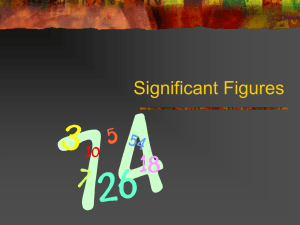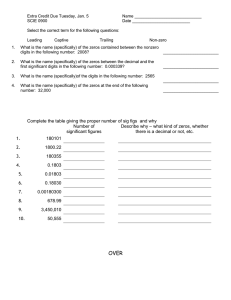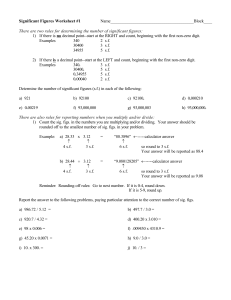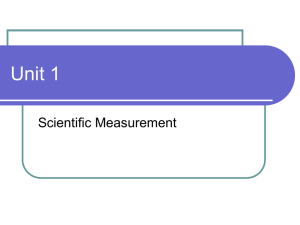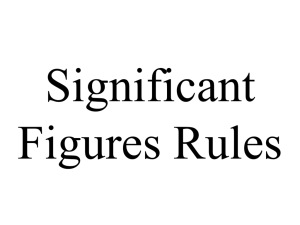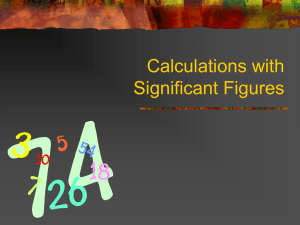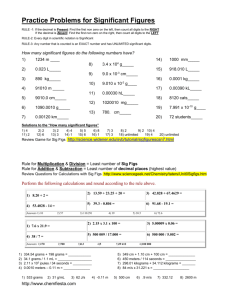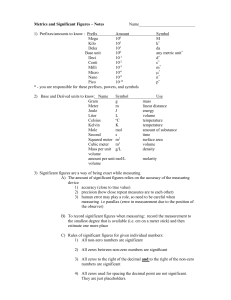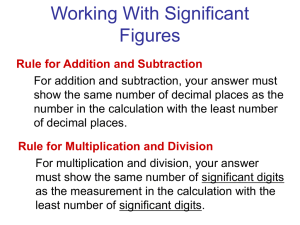Significant Figures & Scientific Notation Rules
advertisement
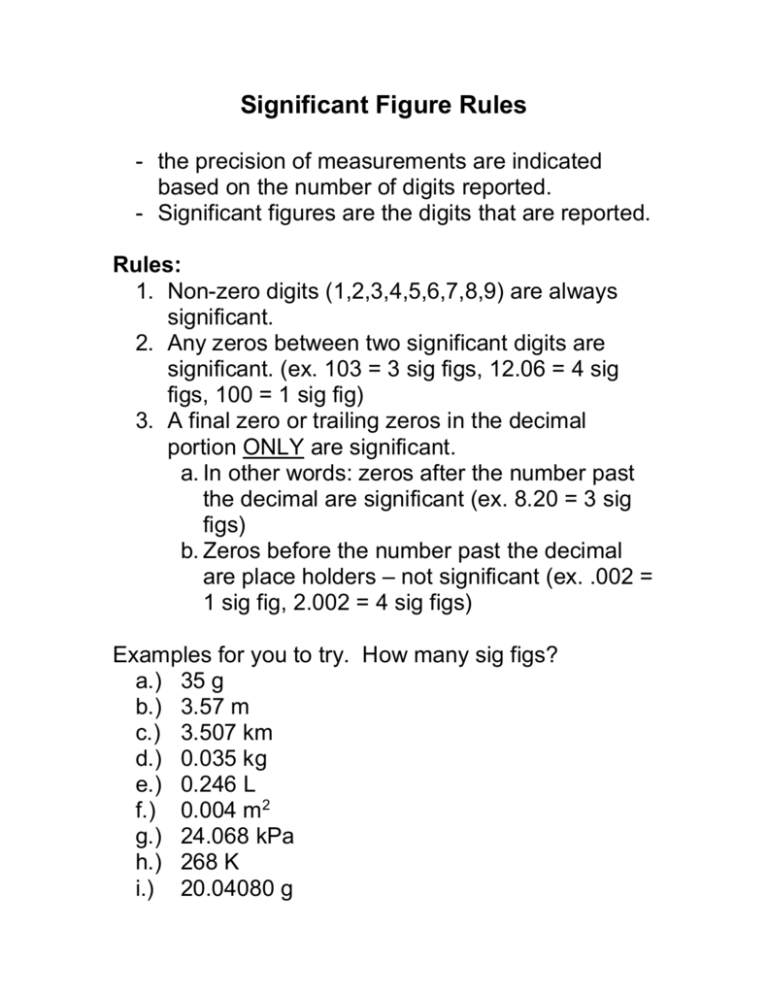
Significant Figure Rules - the precision of measurements are indicated based on the number of digits reported. - Significant figures are the digits that are reported. Rules: 1. Non-zero digits (1,2,3,4,5,6,7,8,9) are always significant. 2. Any zeros between two significant digits are significant. (ex. 103 = 3 sig figs, 12.06 = 4 sig figs, 100 = 1 sig fig) 3. A final zero or trailing zeros in the decimal portion ONLY are significant. a. In other words: zeros after the number past the decimal are significant (ex. 8.20 = 3 sig figs) b. Zeros before the number past the decimal are place holders – not significant (ex. .002 = 1 sig fig, 2.002 = 4 sig figs) Examples for you to try. How many sig figs? a.) 35 g b.) 3.57 m c.) 3.507 km d.) 0.035 kg e.) 0.246 L f.) 0.004 m2 g.) 24.068 kPa h.) 268 K i.) 20.04080 g j.) 730000 k.) 6.751 l.) 0.070 Scientific Notation 4,800,000,000 M = 4.8 x 109 M - move the decimal to the right, increase the exponent, making it more positive. The decimal has to be between the first and second number. .000000048 M = 4.8 x 10-8 - move the decimal to the left, decrease the exponent, making it more negative. The decimal has to be between the first and second number. When adding and subtracting scientific notation, be sure exponents are the same. Adding: 2.3 x 104 + 4.6 x 105 = 46 x 104 + 2.3 x 104 46.0 x 104 48.3 x 104 = 4.83 x 105 Subtracting: 3.2 x 108 – 1.1 x 107 - 3.2 x 108 .11 x 108 9.09 x 108 Another Example: Be sure exponents are the same! 15.6 x 106 + 1.65 x 108 15.6 x 106 + 165.0 x 106 = 180.6 x 106 = 1.806 x 108 Multiplying: Add Exponents (2 x 103) x (3 x 102) = 6 x 105

